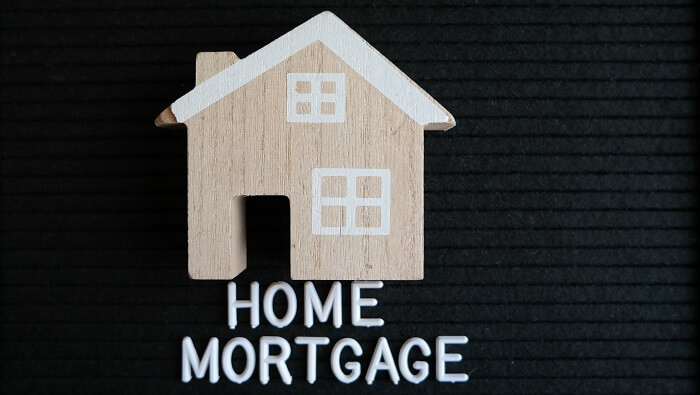Purchasing a home is a significant life event and the first step in building wealth for most people in the United States. Before moving forward on something this monumental, it’s essential to understand the different types of mortgage loans and which one is the right one for you.
Key takeaways
- Fixed-rate mortgages offer a locked interest rate for the loan’s term and are best for long-term ownership.
- Adjustable-rate mortgages have fluctuating interest rates and are good for short-term ownership.
- Interest-only mortgages only pay the interest for a period, ideal for those with high future income expectations.
- Government-insured mortgages, such as FHA and VA loans, offer flexible qualification criteria.
- Jumbo mortgages finance luxury homes with strict approval requirements. Reverse mortgages allow access to home equity for older homeowners.
Common types of mortgages loans
There are several types of house mortgages available, and each has its benefits. Individual circumstances can determine which works best for the situation. Here is a brief overview of each type of mortgage loan.
Fixed-rate mortgages
A fixed-rate mortgage is also known as a ‘traditional mortgage.’ This is the most commonly used mortgage and offers a fixed interest rate locked in for the loan’s entire term. 15-year and 30-year fixed-rate mortgages are by far the most popular in this category and allow a homeowner to have a clear expectation of what’s owed each month.
Pros of fixed-rate mortgages
- A fixed-rate mortgage is popular with the general public as it offers stability and predictability.
- It is a good choice for people holding the property for the long term.
- The principal balance can rapidly be reduced.
Cons of fixed-rate mortgages
- If market interest rates fall, a homeowner may be paying more on their loan than other homeowners.
- It may be locked in for a set amount of time, making refinancing difficult down the road.
If you plan to stay in your new home for at least ten years, a fixed-rate mortgage is an excellent option. Its predictability will allow for easier budgeting, and the fluctuating interest rates won’t amount to much over time.
Adjustable-rate mortgages
An adjustable-rate mortgage (ARM), also known as the ‘floating rate mortgage,’ is the opposite of a fixed-rate mortgage. An ARM offers an interest rate that fluctuates with the market. Monthly payments can go up or down, depending on the current interest rate. The most popular of the adjustable-rate mortgages is the 5/1 ARM. The introductory interest rate is locked in for the first five years (this is the 5), then will change every year (this is denoted by the 1).
Pros of adjustable-rate mortgages
- An ARM can help you build equity in the home more quickly if rates become lower.
- Using an ARM can help you qualify for a larger loan, and therefore a “better” house.
Cons of adjustable-rate mortgages
- These loans are riskier than a traditional mortgage, as interest rates may go up and cause you to pay more.
- Because the payments are not predictable, it’s more difficult to fit into a long-term budget plan.
An ARM mortgage is a good choice for someone who isn’t planning on living in a home for the long term. There’s no point in paying interest on 30 years of a home loan if you plan on moving in 3 to 5 years.
Interest-only mortgages
With an interest-only mortgage loan, the borrower only pays the interest on the loan for a specified period, typically at 5, 7, or 10-year increments, and then pays off the principal in a lump sum or by subsequent payments at a specific date. This loan is better for disciplined borrowers, borrowers with substantial assets, or homebuyers who don’t expect to keep the home long-term.
Pros of interest-only mortgages
- Large payments are deferred, making this a good mortgage loan for people who expect to have more money in the future.
- There is an increased cash flow while in the interest-only payment period.
Cons of interest-only mortgages
- You are not building equity during the interest-only payment period.
- You must be certain of a large sum being available when the payment comes due or risk defaulting on the loan.
This type of mortgage is ideal for someone who wants a home now and anticipates making large payments in the future. Some examples might be a doctor or lawyer who is just starting or an investor who is sure that their return on investment will be significantly higher if they invest their money elsewhere.
Other types of mortgage loans
Fixed-rate and adjustable-rate mortgages account for about 75% of home loans. However, there are other mortgage loan options that aren’t as popular or as common as the more traditional loans.
Government-insured mortgages
Government-insured loans are loans issued by lenders but are backed by the U.S. government if defaulted. Some examples of government-insured mortgages include FHA loans (for lower-income families), VA loans (for eligible military members and veterans), and USDA loans (for qualified borrowers in rural or low population areas). Benefits for these loans include small down payments as well as flexible qualification criteria.
Jumbo mortgages
Jumbo mortgages (aka jumbo loans) are a type of financing designed to finance luxury properties or houses in highly competitive housing markets. These loans exceed the Federal Housing Finance Agency’s limits and have unique tax implications and underwriting requirements. Approval for a jumbo mortgage requires an exceptionally low debt-to-income ratio, truly excellent credit, and a more rigorous screening process than conventional loans. It is best for those looking to buy more houses than they could typically afford and whose credit and income bear scrutiny. As Fannie Mae or Freddie Mac does not back these loans, they are a risk for the lender.
Reverse mortgages
A reverse mortgage is a type of mortgage available only to older homeowners (62+) who own their own homes. This type of loan allows the homeowner to access the equity they’ve already built and then defer payment until they die, sell out, or move out of the home. They are still responsible for paying property taxes and homeowners insurance. Some regulatory authorities are skeptical of these loans, insisting that they are ripe for fraud and are difficult for the average homeowner to understand.
Which is the best mortgage loan type for you?
Before investing in a home, it is beneficial to do your research. We’ve touched on several different types of mortgage loans available, but each one has its own set of risks and benefits depending on the individual situation. Most homebuyers end up taking a traditional loan, but other choices may work better for some people. Sometimes it is necessary to go with the non-traditional mortgage loan due to an inability to secure a traditional loan. It could be because of less than stellar credit or a high debt-to-income.
Contact us today for assistance
If you dream of owning your home but are confused about the right mortgage loan for you, we at Hero Home Programs™ can help. Reach out today to see how this program can help you save thousands of dollars on your path to homeownership.













